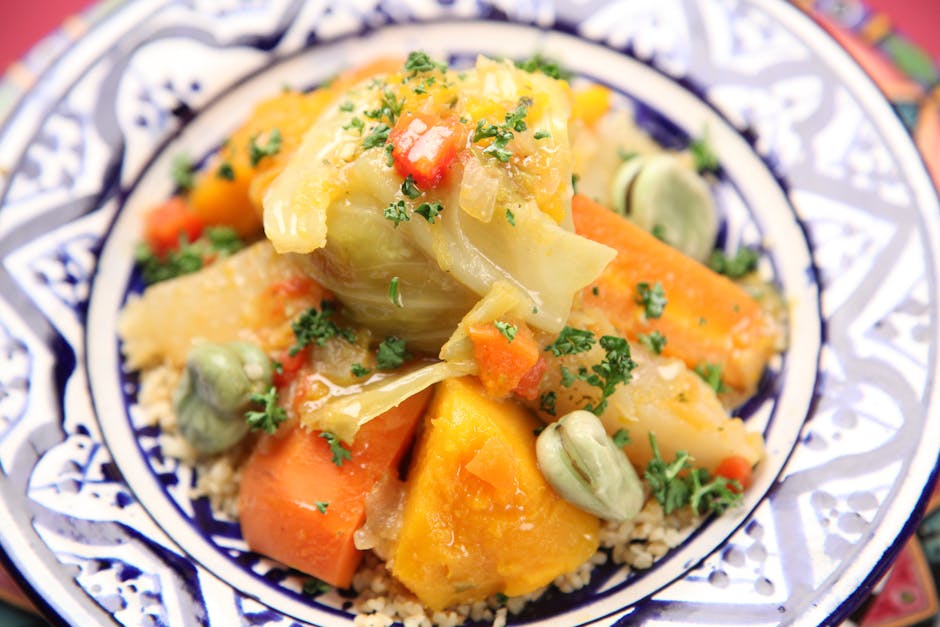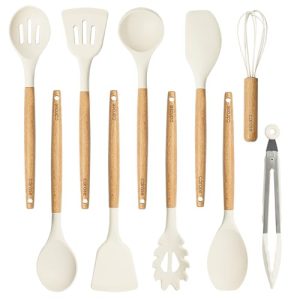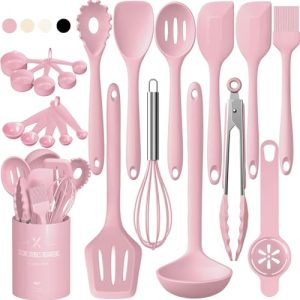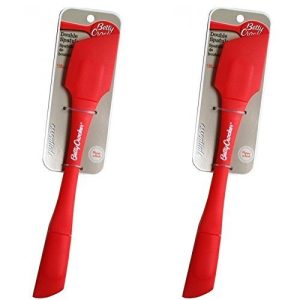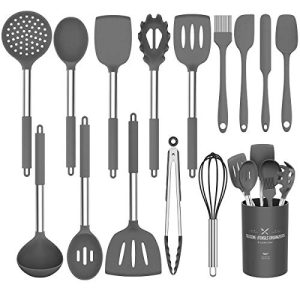Do you ever find yourself staring at a head of cabbage, wondering how to elevate its flavor in your next dish? You’re not alone.
Cabbage, while nutritious and versatile, can sometimes feel a bit bland. But here’s the secret: the right herbs can transform your cooked cabbage into a culinary masterpiece. Imagine a dish where every bite bursts with flavor, making your taste buds dance with delight.
Curious to know which herbs can make this magic happen? Keep reading, because this guide is about to unlock the best herbs that can turn your ordinary cabbage into an extraordinary meal. Your kitchen might just become your favorite restaurant!

Credit: www.spendwithpennies.com
Popular Herbs For Cabbage
Cabbage has a mild flavor that pairs well with many herbs. Choosing the right herbs can enhance its taste. This section will explore popular herbs for cooked cabbage. Each herb adds a unique aroma and flavor to the dish.
Thyme
Thyme brings a subtle earthiness to cabbage dishes. Its delicate flavor complements the vegetable’s sweetness. Use fresh or dried thyme for best results. Sprinkle it during cooking for an aromatic touch.
Dill
Dill offers a fresh and tangy flavor. It brightens up cabbage with its citrusy notes. Add dill towards the end of cooking. This keeps its taste vibrant and fresh.
Parsley
Parsley adds a fresh, peppery taste to cabbage. It enhances the dish without overpowering other flavors. Use it as a garnish or mix it in. Both flat-leaf and curly parsley work well.
Bay Leaves
Bay leaves give cabbage a subtle, savory depth. Their aromatic quality enriches the dish. Add whole bay leaves while cooking. Remember to remove them before serving.
Caraway Seeds
Caraway seeds are a classic choice for cabbage. They offer a warm, nutty flavor. Their distinct taste pairs well with cooked cabbage. Sprinkle them for an added crunch.
Chives
Chives bring a mild onion flavor. They add color and freshness to cabbage dishes. Use them as a garnish for a burst of flavor. Their green hue adds visual appeal.
Dill For Freshness
Dill adds a touch of freshness to cooked cabbage dishes. Its feathery green leaves bring a unique flavor that is both sweet and tangy. This herb enhances the natural taste of cabbage and makes it more appetizing.
Dill’s Distinct Aroma
Dill’s aroma is unmistakable. It has a light, grassy scent that complements cabbage well. When you cook with dill, the kitchen fills with a delightful fragrance. This aroma invites a sense of warmth and comfort.
Flavor Pairing With Cabbage
Dill pairs perfectly with the mild taste of cabbage. Its sweet and slightly bitter notes balance the earthiness of cabbage. This combination creates a harmonious blend that pleases the palate.
Nutritional Benefits
Dill is rich in vitamins. It contains vitamin C, which boosts immunity. It also has antioxidants that help fight free radicals. Adding dill to cabbage makes the dish healthier.
Cooking Tips
Use dill sparingly. A little goes a long way in flavoring cabbage. Chop dill finely to release its oils. Add it towards the end of cooking for maximum freshness.
Serving Suggestions
Sprinkle dill on cooked cabbage before serving. This adds a burst of color and flavor. Pair dill-seasoned cabbage with grilled meats or fish. It makes a refreshing side dish.
Thyme For Earthy Notes
Thyme brings earthy notes to cooked cabbage, making it a flavorful choice. Its subtle fragrance enhances the taste without overpowering. The herb’s gentle aroma complements the cabbage’s natural sweetness. Adding thyme can elevate a simple dish into a memorable meal.
Thyme’s Unique Flavor Profile
Thyme provides a warm, earthy taste. It has a slightly minty undertone. This combination pairs well with cabbage’s mild flavor. Fresh or dried thyme works equally well. Its flavor remains consistent in both forms.
How To Use Thyme In Cooked Cabbage
Start by chopping the cabbage. Heat oil in a pan. Add cabbage and cook until tender. Sprinkle thyme over the cabbage. Stir to mix the flavors. Cook for a few more minutes. This ensures thyme infuses the dish.
Benefits Of Thyme In Your Meals
Thyme is rich in antioxidants. It supports a healthy immune system. The herb also aids digestion. Adding thyme to cabbage boosts nutritional value. It makes the meal healthier and more flavorful.
Pairing Thyme With Other Herbs
Thyme pairs well with rosemary. Both herbs share a similar earthy profile. They enhance each other’s flavors. You can also add garlic for extra zest. These combinations create a well-rounded dish. Experiment to find your favorite blend.
Parsley For Brightness
Parsley adds a fresh, bright taste to cooked cabbage. Its subtle citrus notes enhance the flavor without overpowering. The vibrant green leaves also add a pop of color. This makes your dish not only tasty but appealing to the eyes. You can use it in various forms, like fresh or dried. Each adds its unique flair to the meal.
Parsley: A Versatile Herb
Parsley is more than just a garnish. It works well in many dishes. Its mild, peppery flavor complements the sweetness of cabbage. This herb is easy to find and budget-friendly. You can grow it in your garden or buy it at any grocery store.
How To Use Fresh Parsley
Fresh parsley gives the best taste. Chop it finely before adding to the dish. Sprinkle it on top of cooked cabbage right before serving. This keeps its vibrant color and fresh flavor intact. Fresh parsley is also rich in vitamins and minerals. It adds a health boost to your meal.
Dried Parsley: A Handy Alternative
Dried parsley is a good option when fresh is unavailable. Its flavor is milder but still effective. Add it early in the cooking process. This allows the flavors to meld with the cabbage. Dried parsley is convenient and stores well for long periods.
Balancing Flavors With Parsley
Parsley balances the strong flavors in cooked cabbage. It adds brightness without masking other ingredients. Use it to enhance the overall taste. This creates a more complex and satisfying dish.
Rosemary For Aromatic Depth
Cabbage is a versatile vegetable. It can be enhanced by herbs. Rosemary stands out for its aromatic depth. This herb has a unique flavor profile. It adds richness to cooked cabbage dishes. Its fragrant aroma elevates simple recipes. Let’s explore why rosemary is a great choice.
What Makes Rosemary Unique?
Rosemary has a distinct pine-like scent. It offers earthy notes. These characteristics blend well with cabbage. Its robust flavor complements the vegetable’s mildness. This creates a harmonious taste experience.
How To Use Rosemary With Cabbage
Add rosemary leaves early in cooking. This allows flavors to infuse fully. Fresh or dried rosemary works well. Use sparingly; a little goes a long way. Try pairing rosemary with garlic and onion. This enhances the dish further.
Benefits Of Rosemary In Your Diet
Rosemary is more than a flavor enhancer. It has health benefits too. It contains antioxidants. These can support overall well-being. Incorporating rosemary into meals is simple. Enjoy both taste and health perks.
Recipes Featuring Rosemary And Cabbage
Experiment with rosemary in soups. Use it in stews or sautéed cabbage. Incorporate it in roasted cabbage dishes. All these showcase rosemary’s aromatic depth. Discover new favorites with these ideas.
Basil For Sweetness
Basil adds a sweet flavor to cooked cabbage, enhancing its natural taste. Its aromatic leaves blend well, creating a delightful dish. Perfect for those who enjoy a hint of sweetness in their meals.
Basil is a remarkable herb that adds a distinct sweetness to cooked cabbage dishes. Its fresh and slightly peppery flavor can transform a simple cabbage recipe into a delightful culinary experience. Whether you’re whipping up a quick side dish or an elaborate main course, basil can be your secret ingredient to elevate the taste.Understanding Basil’s Flavor Profile
Basil is known for its sweet and aromatic qualities. Its unique taste can complement the earthy flavor of cabbage perfectly. Imagine the fresh burst of flavor as you take your first bite—a subtle sweetness that balances the slightly bitter notes of cabbage.How To Add Basil To Cooked Cabbage
You can add fresh basil leaves towards the end of cooking to preserve its flavor. Chopped basil can be sprinkled over the cooked cabbage just before serving. This not only enhances the taste but also adds a pop of color to your dish.Pairing Basil With Other Ingredients
Basil pairs wonderfully with garlic and lemon. Try sautéing cabbage with minced garlic, and finish with a squeeze of lemon and fresh basil. This combination can create a vibrant and refreshing dish that is sure to impress your guests.Personal Experience With Basil And Cabbage
I once tried adding basil to my grandmother’s traditional cabbage stew recipe. It was a game-changer. The sweetness of the basil brought a new dimension to the dish, and it quickly became a family favorite.Choosing The Right Type Of Basil
There are several types of basil, but sweet basil is ideal for cooked cabbage. Its mild sweetness is not overpowering, making it a versatile choice for various recipes. Have you experimented with other types of basil in your cooking?Growing Your Own Basil
If you love cooking with basil, why not grow it at home? Basil is easy to cultivate and can thrive in small pots on your windowsill. Freshly picked basil can make your cabbage dishes even more flavorful. Adding basil to cooked cabbage is a simple yet effective way to enhance its sweetness and overall appeal. Whether you’re an experienced cook or just starting out, basil can be your go-to herb for a sweet touch. So, what will you try next with basil in your kitchen?Sage For Savory Flavors
Sage adds a warm, earthy taste to cooked cabbage dishes. It complements the cabbage’s mild flavor, enhancing its depth. This herb is perfect for creating savory meals that delight the senses.
Cooking cabbage can sometimes result in a bland dish, but adding the right herbs can transform it into a savory delight. Sage is a fantastic herb to elevate the flavors of cooked cabbage. Its earthy and slightly peppery taste adds depth, making every bite memorable. Let’s dive into how sage can enhance your cabbage dishes and why you might want to try it out next time you’re in the kitchen.Sage’s Unique Flavor Profile
Sage has a distinct aroma that can instantly perk up a dish. Its flavors are both earthy and slightly peppery, which complements the mild taste of cabbage beautifully. When you cook cabbage with sage, it creates a harmonious blend that is both comforting and flavorful.Pairing Sage With Other Ingredients
Sage pairs wonderfully with garlic and onions, enhancing their natural flavors. You can start by sautéing chopped onions and garlic in a bit of olive oil, then add shredded cabbage and a generous sprinkle of dried or fresh sage. This combination not only adds flavor but also creates a fragrant aroma that fills your kitchen.Experimenting With Different Types Of Cabbage
Consider using different types of cabbage such as savoy or napa to see how sage complements each variety. Each type of cabbage has its unique texture and sweetness, and sage can bring out the best in them. Have you ever tried sage with red cabbage? Its subtle peppery notes provide a nice contrast to the slight sweetness of red cabbage.Personal Experience With Sage And Cabbage
I remember the first time I added sage to my cabbage dish. I was skeptical at first, but the result was unexpectedly delightful. The sage turned a simple meal into something more gourmet and satisfying. It’s now a staple in my kitchen when cooking cabbage.Tips For Using Sage In Cabbage Dishes
– Fresh vs. Dried: Both fresh and dried sage work well, but fresh sage tends to have a more robust flavor. – Quantity Matters: Start with a small amount of sage, as it can be potent. You can always add more if needed. – Cooking Techniques: Consider roasting cabbage with sage for a more intense flavor. Roasting brings out the sweetness in cabbage, and sage complements it perfectly. Trying out sage in your cooked cabbage recipes can be an exciting culinary adventure. Have you experimented with sage in your cooking before? If not, this could be the perfect opportunity to try something new and delicious.Bay Leaves For Subtle Flavor
Cabbage is a versatile vegetable. It blends well with numerous flavors. One herb that elevates cooked cabbage is bay leaves. They offer a subtle hint that enhances the dish without overpowering it. Their aromatic presence adds complexity, making the cabbage more delightful. Bay leaves can transform a simple meal into an elegant dish.
Bay Leaves: Aromatic Enchantment
Bay leaves have a unique aroma. This aroma lends depth to any dish. When added to cabbage, they infuse it with a mild, herbal note. This note is neither sharp nor overwhelming. Instead, it is gentle and soothing. Perfect for those who appreciate subtlety in their food.
Enhancing Natural Flavors
The natural sweetness of cabbage pairs well with bay leaves. Together, they create a harmonious blend. This blend enhances the cabbage’s inherent flavors. It adds a layer of sophistication to everyday cooking. The result is a dish that is both simple and elegant.
Cooking Tips
Use whole bay leaves for best results. Add them early in the cooking process. This allows the flavor to infuse deeply. Remember to remove them before serving. Bay leaves are not meant to be eaten. Their role is purely to enhance flavor.
Perfect Pairings
Bay leaves complement other herbs like thyme or rosemary. They work well in dishes with onions or garlic. Experiment with different combinations. Discover which flavors suit your palate. Bay leaves are versatile and adaptable, making them a kitchen staple.
Cilantro For A Zesty Twist
Cilantro adds a zesty twist to cooked cabbage, enhancing its flavor with fresh, citrusy notes. This herb pairs well, elevating the dish’s taste profile subtly and deliciously. Try it for a refreshing culinary experience.
Cooking cabbage can sometimes feel like a routine task, but adding cilantro can transform it into a vibrant dish. Cilantro, with its fresh and citrusy notes, can elevate the flavor profile of cooked cabbage. This herb adds a zesty twist that can surprise your taste buds and make your meals more exciting.Cilantro’s Unique Flavor Profile
Cilantro stands out because of its bright and slightly peppery taste. This unique flavor can cut through the heaviness of cooked cabbage. It offers a refreshing contrast that keeps the dish lively and inviting.How To Use Cilantro With Cabbage
To use cilantro effectively, chop it finely and sprinkle it over your cooked cabbage just before serving. This preserves its vibrant flavor and aroma. You can also mix it with a squeeze of lime juice for an extra burst of freshness.Benefits Of Adding Cilantro
Cilantro not only enhances taste but also brings nutritional benefits to your meal. It’s rich in vitamins A and K, which are essential for your health. Adding cilantro is a simple way to boost the nutritional value of your cabbage dish.Personal Experience With Cilantro
I remember the first time I added cilantro to my cabbage stir-fry. The herb’s zest immediately made the dish more appealing and flavorful. It was a game-changer for me, and now, I never cook cabbage without it.Experiment And Enjoy
Why not experiment with cilantro in your next cabbage dish? You might discover a new favorite. What other herbs could you try with your cabbage to create an exciting flavor combination?
Credit: www.myburntorange.com
Herb Combinations
Cooking cabbage can be a delightful experience with the right herbs. Herb combinations enhance cabbage’s flavor, making it a star in any dish. Each herb brings its unique taste, transforming ordinary cabbage into a gourmet delight. Let’s explore some perfect herb combinations for cooked cabbage.
Rosemary And Thyme
Rosemary and thyme create a savory blend that complements cabbage’s earthy flavors. Rosemary adds a pine-like fragrance. Thyme offers a subtle, peppery taste. Together, they elevate the dish, making it aromatic and flavorful.
Dill And Parsley
Dill and parsley bring a fresh, vibrant touch to cooked cabbage. Dill infuses a tangy, slightly sweet note. Parsley adds a mild peppery taste, enhancing the freshness. This combination is perfect for a light, refreshing cabbage dish.
Sage And Garlic
Sage and garlic deliver a robust, hearty flavor to cabbage. Sage provides a warm, slightly bitter taste. Garlic adds a pungent kick. This pairing is ideal for dishes that need bold flavors.
Basil And Oregano
Basil and oregano offer a classic Mediterranean taste. Basil brings a sweet, aromatic flavor. Oregano adds a hint of spiciness. This duo is great for cabbage dishes with a touch of Italian flair.
Cilantro And Mint
Cilantro and mint create a refreshing, zesty combination. Cilantro adds a citrusy, slightly pungent flavor. Mint offers a cool, sweet undertone. This pairing is perfect for summer cabbage recipes.
Tips For Using Fresh Vs. Dried Herbs
Cooking cabbage with herbs can elevate its flavor to new heights. The choice between fresh and dried herbs is essential. Each brings unique qualities to your dish. Understanding these differences can enhance your culinary experience.
Fresh Herbs: Burst Of Flavor
Fresh herbs offer vibrant flavors. They add color and aroma to cooked cabbage. Basil, parsley, and dill are great choices. These herbs are best added at the end of cooking. This ensures their flavor remains strong and fresh.
Dried Herbs: Subtle And Savory
Dried herbs have concentrated flavors. Thyme, oregano, and rosemary are perfect for cabbage. They blend well during longer cooking times. Add them early in the cooking process for full flavor infusion.
Storage And Shelf Life Considerations
Fresh herbs need refrigeration. They last a few days at most. Dried herbs can be stored in a cool, dry place. They maintain their potency for months. Consider this when planning your meals.
Balancing Flavors For The Perfect Dish
Balance is key with herbs. Too much can overpower the cabbage. Use a light hand with fresh herbs. Dried herbs require careful measurement. Taste as you go to ensure harmony in your dish.

Credit: nomnompaleo.com
Storing And Preserving Herbs
Fresh herbs enhance the flavor of cooked cabbage. Proper storage keeps them fresh. The right techniques ensure herbs retain their aroma and taste. Knowing how to store herbs can save time and money. Let’s explore effective ways to preserve your favorite herbs.
Storing Fresh Herbs
Keep fresh herbs in the fridge. Wrap them in a damp paper towel. Place them in a plastic bag with holes. This keeps herbs moist and fresh. Use within a week for best flavor.
Freezing Herbs
Freezing is great for long-term storage. Chop herbs and pack in ice cube trays. Cover with water or olive oil. Freeze until solid. Store cubes in labeled freezer bags.
Drying Herbs
Air-dry herbs by hanging them upside down. Use a warm, dry place. Remove leaves from stems once dry. Store in airtight containers away from light. Dried herbs last several months.
Using Herb Preservation Techniques
Choose the right method for each herb type. Soft herbs freeze well. Hard herbs dry well. Experiment to find what works best for you. Preserved herbs enrich cabbage dishes any time of the year.
Frequently Asked Questions
Which Spice Is Best For Cabbage?
Cumin pairs excellently with cabbage, enhancing its flavor. Turmeric and mustard seeds also add a delightful taste. Experiment with caraway seeds for a unique twist. Each of these spices brings out different flavors in cabbage dishes, making them versatile choices for various recipes.
What Are The Best Herbs For Cooked Cabbage?
The best herbs for cooked cabbage include thyme, dill, and parsley. Thyme adds earthy notes, while dill provides a fresh, tangy flavor. Parsley offers a mild, peppery taste. Experiment with these herbs to enhance the natural flavors of cabbage and create a delicious dish.
Can I Use Dried Herbs For Cabbage Dishes?
Yes, dried herbs can be used in cabbage dishes. They are convenient and have a longer shelf life. Use a smaller quantity than fresh herbs, as dried herbs are more concentrated. Rehydrate them in a little water before adding to enhance their flavor.
How Does Rosemary Enhance Cabbage Flavor?
Rosemary adds a robust, aromatic flavor to cabbage. Its piney, slightly peppery taste complements the earthy notes of cabbage. Use it sparingly to avoid overpowering the dish. Rosemary pairs well with garlic and lemon, providing a Mediterranean twist to your cooked cabbage.
Conclusion
Cabbage dishes get a fresh boost with the right herbs. Dill and thyme add warmth. Basil offers a sweet touch. Oregano and rosemary bring depth and aroma. Each herb makes cabbage unique and tasty. Experiment with combinations for new flavors.
Cooking cabbage with herbs is easy and rewarding. Enjoy these delightful herbs in your next meal. Your kitchen will fill with wonderful scents. Happy cooking with cabbage and herbs!
